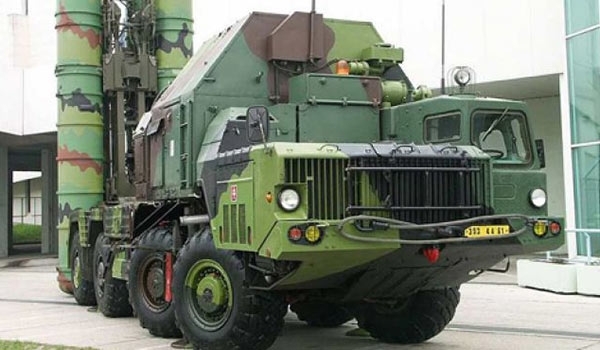Russia may resume a deal to deliver S-300 surface-to-air defense systems to Iran if only the UN decides to lift its ban on arms sales to Tehran.
 Russia may resume a deal to deliver S-300 surface-to-air defense systems to Iran if only the UN decides to lift its ban on arms sales to Tehran, a leading Russian defense expert said on Friday.
Russia may resume a deal to deliver S-300 surface-to-air defense systems to Iran if only the UN decides to lift its ban on arms sales to Tehran, a leading Russian defense expert said on Friday.
Negotiators from Iran, the United States and other world powers agreed on Thursday to a framework for a final agreement on Tehran’s nuclear program.
Iran agreed in principle to accept significant restrictions on its nuclear facilities, in return, economic sanctions unilaterally imposed on the Islamic Republic by the US, EU and the UN Security Council will be lifted.
Following the agreement, Russian Deputy Foreign Minister Sergey Ryabkov said that a UN arms embargo against Iran should also go.
"Lifting sanctions on Iran, including the arms embargo, would be an absolutely logical thing to do,” said Igor Korotchenko, who heads the Global Arms Trade Analysis Center think tank in Moscow, Sputnik reported.
“Of key importance to us is the delivery of the upgraded S-300 missiles to Iran… A contract to this effect could be resumed on terms acceptable to both Moscow and Tehran,” he added.
In January, Tehran and Moscow signed an agreement to broaden their defensive cooperation and also resolve the problem with the delivery of Russia's S300 missile defense systems to Iran.
The agreement was signed by Iranian Defense Minister Brigadier General Hussein Dehqan and his visiting Russian counterpart General Sergey Shoigu in a meeting in Tehran.
The Iranian and Russian defense ministers agreed to resolve the existing problems which have prevented the delivery of Russia's advanced air defense systems to Iran in recent years.
The two sides also agreed to broaden their defense cooperation and joint campaign against terrorism and extremism.
In 2007, Iran signed a contract worth $800mln to buy five Russian S300 missile defense systems.
But the deal was scrapped in 2010 by the then-Russian President Dmitry Medvedev, who was unilaterally expanding on sanctions against Iran imposed by the UN Security Council.